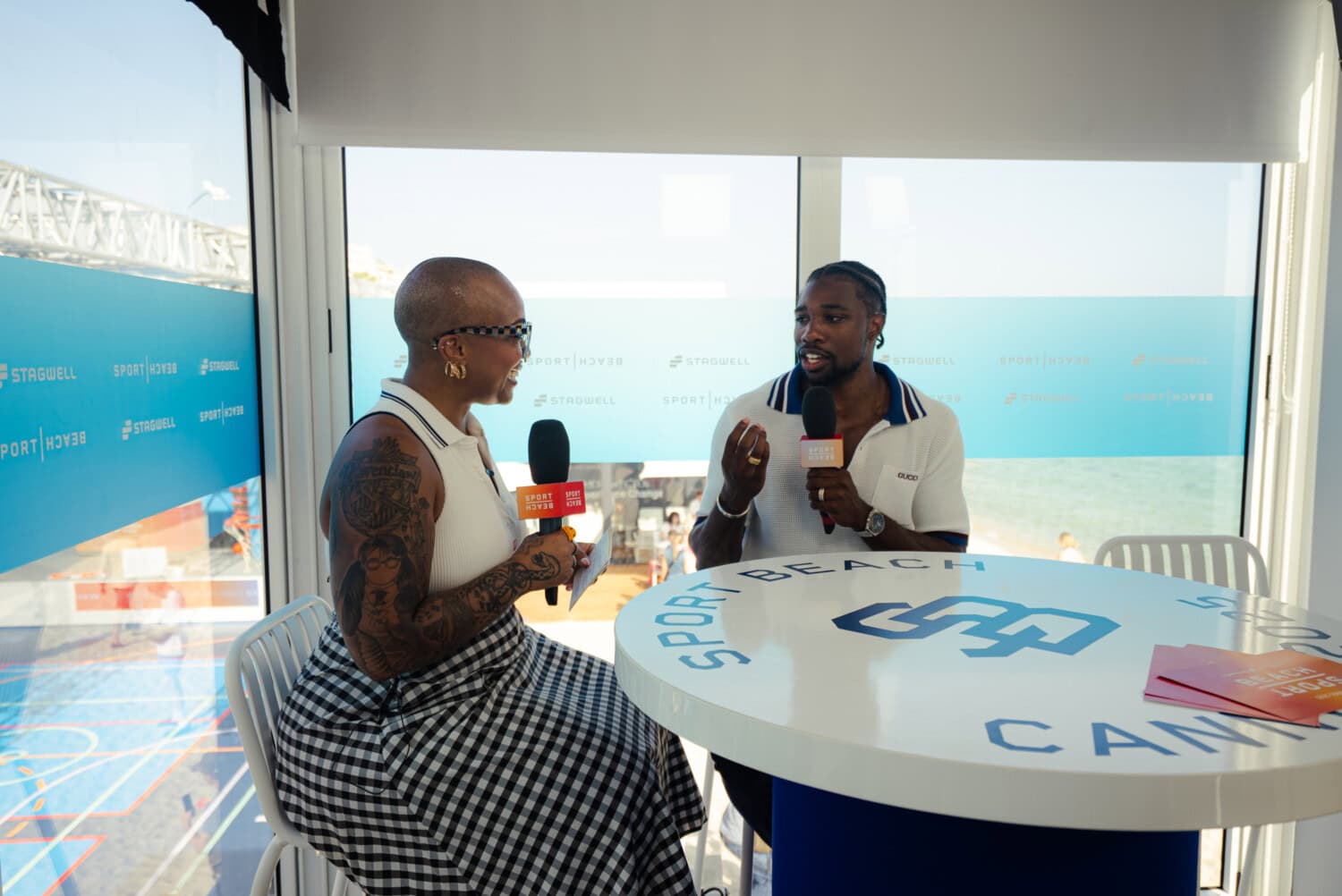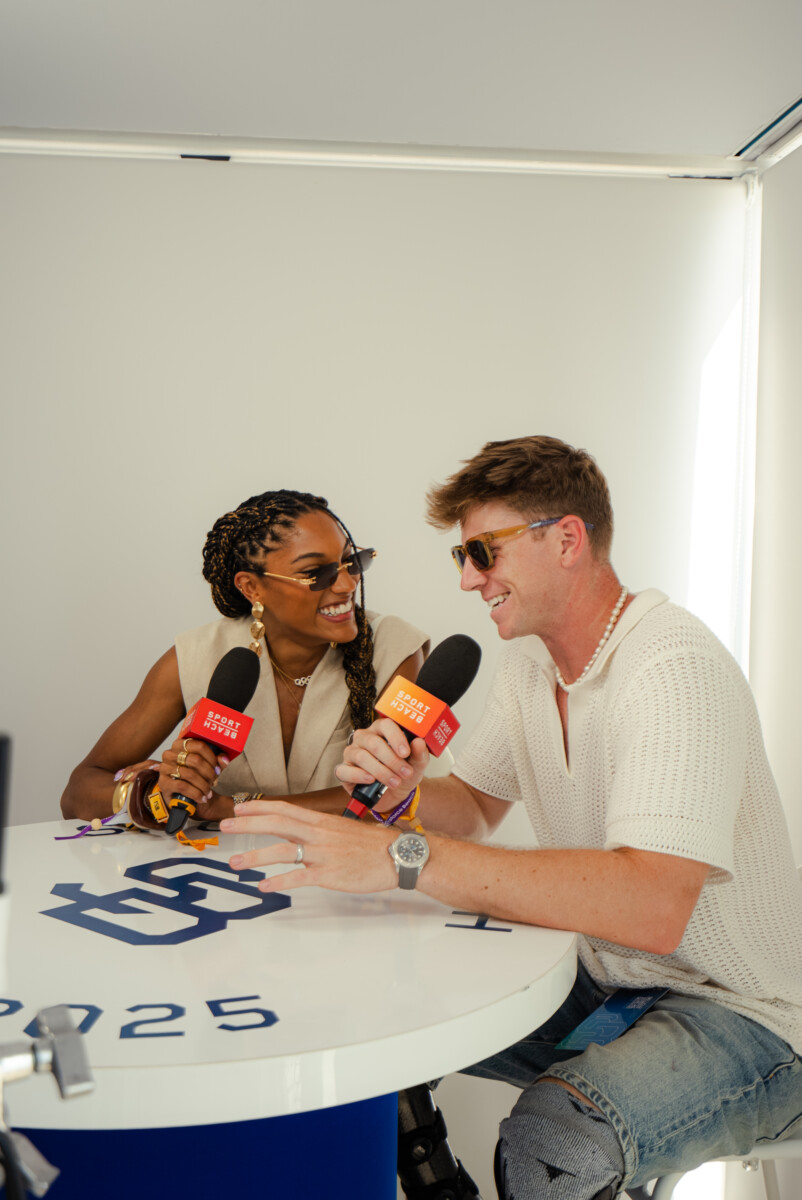At the Cannes Lions festival, Sport Beach 2025 brought together power players from sports, media, and tech to explore what it truly takes to resonate in today’s attention economy.
What started as a bold Cannes Lions activation has quickly become one of the most influential stages in global marketing.
Stagwell launched Sport Beach in 2023 alongside the Cannes Lions International Festival of Creativity, and now the company has become the festival’s first-ever Official Lions Sport Partner. Sport Beach has quickly proven why sports are more than entertainment — they’re a force driving culture, commerce, and connection.
Set on the shores of the French Riviera, Sport Beach gathered some of the world’s biggest names for its 2025 event — Serena Williams, Noah Lyles, Candace Parker, Brandon Marshall, Megan Rapinoe, and many others to turn a spotlight on how athletes, brands, and creators are reshaping the business of influence.
One of the biggest throughlines across panels this year? Culture isn’t something you manufacture in a boardroom. It’s lived, breathed, and built in real time. Speakers kept it candid about what makes a space or campaign feel real, and what doesn’t. Some spoke on how paying for people to be in the room instead of naturally attracting culturally relevant crowds isn’t the way to go. Others echoed the importance of rejecting surface-level stunts.
Athletes aren’t just repping brands — they’re shaping narratives, owning creative, and shifting industries. BMX star and Jordan Brand athlete Nigel Sylvester spoke about tapping into personal memories and community inspiration to drive every piece of content he creates. Jeff Staple, whose designs now appear in tunnel fits and fashion weeks alike, explained how athletes have become “the new runway show.”
At the same time, the way fans consume sports is evolving, and leagues are adapting accordingly. Young fans are often watching sports highlights before they watch full games (if at all). That’s why new leagues built for short-form, social-first content are gaining momentum.
And while everyone was discussing how fast culture moves, a standout moment came during the Moving at the Speed of Culture panel, when Sylvester, Verizon CMO Leslie Berland, sports media host Taylor Rooks, and Arctos’ TJ Adeshola broke down what it really takes to keep up and stay ahead.
Moving at the Speed of Culture
At Sport Beach 2025, one of the most anticipated conversations unfolded on the main stage during the Moving at the Speed of Culture discussion. The 30-minute panel brought together a dynamic trio — Berland, Rooks, and Sylvester— and was moderated by Adeshola. The session wasn’t just about culture; it was culture, dissected and reframed for a room full of brand marketers, creators, and execs looking to catch the next wave without falling behind.
From the outset, the panelists set the tone with candid discussion. Berland, a veteran marketer with stops at Twitter and now Verizon, emphasized that moving at the speed of culture means staying deeply plugged in.
“You can’t sit in an office somewhere and think about what’s happening on TikTok or what is or isn’t cool,” she said. “For all marketers everywhere… the only way to be able to understand trends and what it will or will not be is to be obsessively on these platforms.”
Berland approaches brand strategy with a bold, conversation-first mindset, focusing less on traditional marketing tactics and more on how a campaign will spark buzz and cultural relevance. Her philosophy centers on creating work that stands out and drives real dialogue — if an idea doesn’t feel fresh, daring, or capable of generating attention, it’s not worth pursuing.
Sylvester, whose creative energy has taken BMX far beyond its niche, drove home the point that culture is personal and communal. His recent “Brick by Brick” Jordan sneaker drop, inspired by New York City and his own hustle, exemplified how storytelling and product can come together to make a significant impact.
“The storytelling around ‘Brick by Brick’ came from the heart, came from my experiences, and people resonated with that,” he said. “And when you think about that shoe as well, like it was — it’s a tribute to New York City first and foremost, and then the mantra ‘Brick by Brick,’ I think we all can relate to that in one way or the other.”
Rooks, known for her ability to get athletes to open up in a friendly manner, explained how she balances visibility with authenticity.
“I decided when I got into this space that I wanted to always show up as a whole person,” Rooks said. “And I think that when you are in media or you’re a journalist, you’re a personality, there’s this idea that you can only be that thing, and that didn’t make me feel comfortable. I’m a human.”
Rooks approaches her work and brand partnerships with intention and authenticity. She believes in showing up as her whole self, which helps create deeper, more genuine connections, especially in interviews. Rooks only aligns with brands that reflect her values, making it clear that being everywhere isn’t the goal; being intentional about visibility is. As social media evolves, she’s turning to platforms like Substack to build more meaningful, community-driven conversations. Look out for her newsletter, coming soon.

Throughout the panel, all three panelists returned to a shared philosophy: Knowing who you are, and perhaps more importantly, who you are not, is essential to navigating today’s cultural speedway.
“There’s so much power in saying no, being choosy, [and] being selective,” Sylvester said. “And for me, I’ve done that my entire career, and I think that [I] contribute my longevity to saying no.”
Berland emphasized that brand identity is often defined by what you choose not to do. She explained that staying focused on clear objectives helps cut through distractions and keeps brands from chasing every shiny idea that comes their way.
Rooks added a resonant closing takeaway.
“I see people make the mistake of believing that if you can see me everywhere, that means I’m progressing. You’re really just taking up space. So you wanna make the moments that they do see you really intentional,” she concluded.
As the session wrapped, the message was clear: Culture doesn’t wait, and the best brands, creators, and storytellers aren’t just catching up. They’re deciding what moves next. Whether you’re leading a billion-dollar brand or building a personal platform from scratch, the path forward is the same: stay rooted in authenticity, trust your instincts, and don’t be afraid to move differently.




